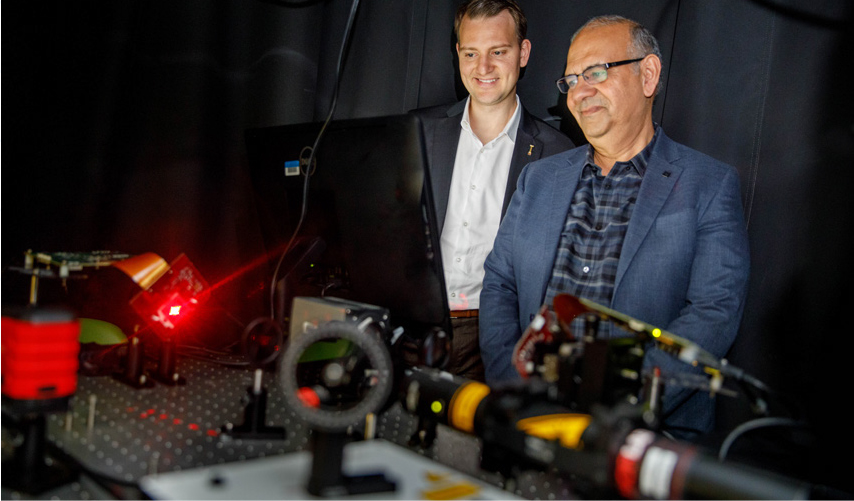Professors Tarek El-Ghazawi and Volker Sorger have recently received three grants totaling over $5.1 million in funding from various institutions including the Office of Naval Research (ONR), the Army Research Office (ARO), and the Airforce Office of Scientific Research (AFOSR). Their general collaborative efforts focus on developing new processors and computers using light (i.e., photonics as opposed to electronics). The interdisciplinary work is unique in the way that it brings different research backgrounds. Prof. El- Ghazawi, ECE department chair, IEEE Fellow and the founding director of The GW Institute for Massively Parallel Applications and Computing Technologies (IMPACT) is an international authority on high-performance computing.
Prof. Sorger, 2022 Optica and SPIE fellow and PECASE award recipient, focuses closely on opto-electronic devices and circuits, plasmonics, and nanophotonics. Together they solve complex emerging issues in computing. Prof. Sorger attributes their success precisely to this which drives their innovation and outside-the-box thinking. To date, Drs. Sorger and El-Ghazawi have begun the process for and received well over a dozen patents for this technology. Their efforts to commercialize the technology they are working on has been supported by the Technology Commercialization Office.
Professor Ahmed Louri, David and Marilyn Karlgaard Endowed Chair Professor, IEEE Fellow and the recipient of the IEEE Computer
Society Edward J. McCluskey Technical Achievement Award in 2020 is investigating novel parallel computer architectures and network-on chip technologies supported by two recently awarded grants from the National Science Foundation (NSF). These awards bring the total amount of federal funds for this research topic to $4.5 million over the past three years. One of the projects aims to develop a holistic framework spanning architecture design, Network-on-Chip design, machine learning algorithms, and algorithm architecture co-optimization to design energy-efficient and high performance scalable accelerator architectures for graphs neural networks. ECE efforts in future of computing, led by professors El-Ghazawi, Sorger, and Louri have resulted in many publications and patents to date.



